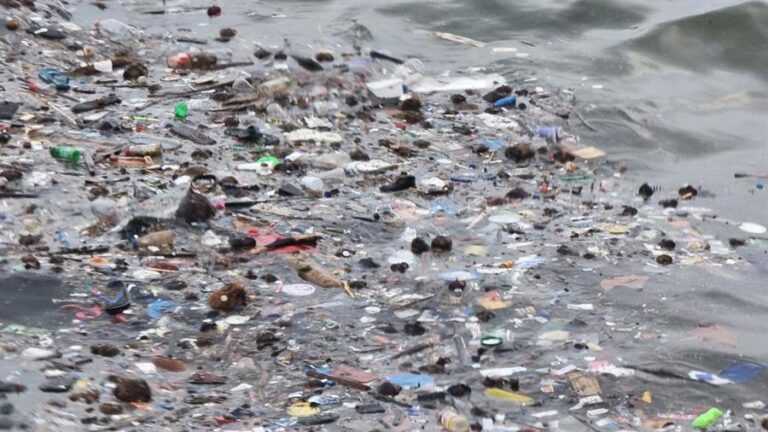
Ocean full of Garbage?
Sydney, Australia, Apr 5 (EFE).-
Between three to 11 metric tons of plastic waste covers the ocean floor, where it breaks down into smaller pieces and mixes with the sediment, a study published Friday said.
According to the study by Australia’s government science agency, CISRO, and the Canada-based University of Toronto, a garbage truck’s worth of plastic enters the ocean every minute.

“We discovered that the ocean floor has become a resting place, or reservoir, for most plastic pollution, with between three and 11 million metric tons of plastic estimated to be sinking to the ocean floor,” senior CSIRO research scientist Denise Hardesty said in a statement.
The study, conducted with the help of remotely operated vehicles and bottom trawls, found that 46 percent of the plastic mass on the ocean floor resides above a depth of 200 meters.
The other 54 percent of the plastic mass, which includes fishing nets, glasses, bags, and bottles, among other products, is located between 200 meters and 11,000 meters underwater.
“Plastic pollution on the ocean floor could be up to 100 times more than the amount of plastic floating on the ocean’s surface,” the researcher from the University of Toronto, Alice Zhu, who led the study, said.
Plastic use is expected to double by 2040, the researchers warned, adding that it was crucial to understand how plastic travels to the seabed in order to protect marine ecosystems and wildlife.
The ocean surface is a temporary resting place for plastic waste, but the deep ocean acts as a sink for marine plastic pollution, Zhu said.
Plastic, which can take between decades to millions of years to decompose, accounts for 85 percent of all marine litter, according to the United Nations.

A 2022 study by the Organization for Economic Cooperation and Development (OCED) estimated that there was about 30 million tons of plastic in the seas and oceans and another 109 million tons in rivers.
“The buildup of plastics in rivers implies that leakage into the ocean will continue for decades to come,” OCED said.
Plastic pollution can cause poisoning, behavioral disorders, starvation, and suffocation for marine life and can also impact human health through the ingestion of seafood or even common sea salt. EFE
wat/up/pd


